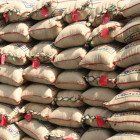April 11, 2011; Source: The Durango Telegraph | Who’s looking to “help small and medium sized families expand their businesses, get more income for their products and reduce the environmental impacts of farming, while strengthening local economies and providing customers around the world with long-term access to affordable, high quality fresh food”? These aren’t words from a rural economic development strategy, nor from mission statements of human rights or environmental nonprofit organizations. Rather, this is Walmart talking, in its press release about the company’s new emphasis on sustainable agriculture.
While Walmart has been “greening” its supply chain in recent years, the sustainable agriculture initiative focuses not only on operations, but also on the economic decline of many rural farming communities in which it operates. Walmart’s Senior Director of Strategic Food Sourcing, Ron McCormack, told Food Safety News that “if we could revitalize those economies, it would let us buy fresher product for our customers and save food miles. At the same time, we would be supporting many rural communities that support our stores.”
Benchmarking targets vary by country, but all include:
Sign up for our free newsletters
Subscribe to NPQ's newsletters to have our top stories delivered directly to your inbox.
By signing up, you agree to our privacy policy and terms of use, and to receive messages from NPQ and our partners.
- Increased sourcing with small and medium sized farmers
- Increased local sourcing, meaning food that’s produced in the same state in which it’s sold.
- Working with suppliers to reduce use of pesticides, energy and water through improved crop selection and agricultural management practices
- Raising income of farmers who are Walmart suppliers
The initiative has generally received positive press, albeit with measured skepticism. As Durango Telegraph reporter Ari LeVaux notes,” It may seem out of character for Walmart to act as an agent for positive change, but remember: the only thing Walmart could do that would truly be out of character would be to knowingly undermine its bottom line.”
Does this initiative address other Walmart practices that have prompted negative publicity, such as personnel policies and outsourcing standards? Not really. Will it have unmitigated positive effect on the rural economy? Ask the small scale cooperatives and specialty markets that may face increased competition for product and customers.
Nevertheless, Walmart’s commitment to modeling sustainable agriculture as a viable business strategy at various economies of scale is laudable. Like other Walmart “greening” initiatives, it’s likely to shape market behavior by other corporate giants and their supply chains. What do you think? As Walmart adds “buy local” to its “think global” strategy, can nonprofits working on sustainable agriculture, food systems and rural development authentically advance their missions by offering to partner? – Kathi Jaworski













